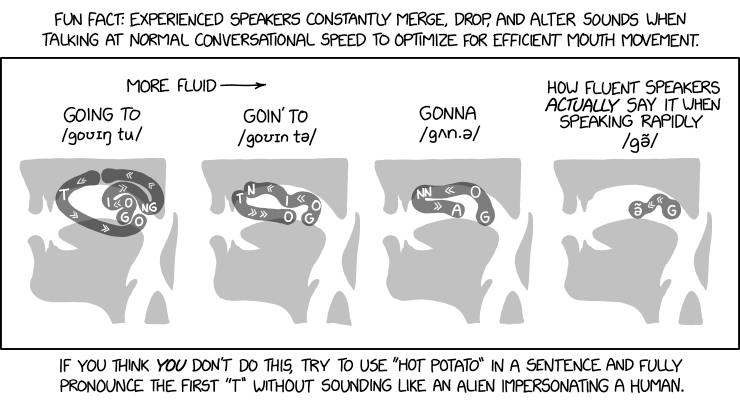this post was submitted on 06 Jun 2024
665 points (99.1% liked)
xkcd
9350 readers
130 users here now
A community for a webcomic of romance, sarcasm, math, and language.
founded 2 years ago
MODERATORS
you are viewing a single comment's thread
view the rest of the comments
view the rest of the comments

I thought the same at first, but then I tried actually saying it out loud. "Yeah, I'm just gonna go to the shops". And I actually think Munroe has it right here, at least for my accent. If I had been asked to say it and carefully analyse it myself, I probably wouldn't have noticed at all that I was eliding more than "going to" to "gonna". And if I had noticed, I still probably would have analysed it as (and I'm using Hangul here because frankly I don't know how to spell out the vowel in the Latin alphabet in a way that actually makes sense) 근 (basically "gun", but with a lazier vowel). But it's definitely been elided down to a single syllable.
The key thing is that this only happens when putting it into the middle of a full sentence. If it's the only word I say, it stays "gonna".
edit: wait 🤦♂️. I can use IPA. I'd have analysed it as /gən/ But realistically, Munroe's /gә̃/ is probably more accurate.
I can only get to /gә̃/ if I make an effort to say it faster than I ever actually talk. Otherwise, it definitely always has that "n" sound in there.
Yeah, “gon’” seems about the most efficient form of “going to” that would be recognizable.
Going to > gonna > gon’
I guess if you’ve lived anywhere where speech has drifted a little hillbilly this version is just daily speech rather than any need for speed.